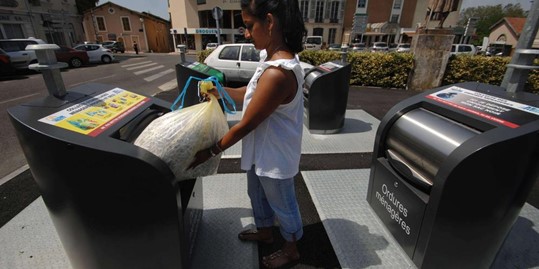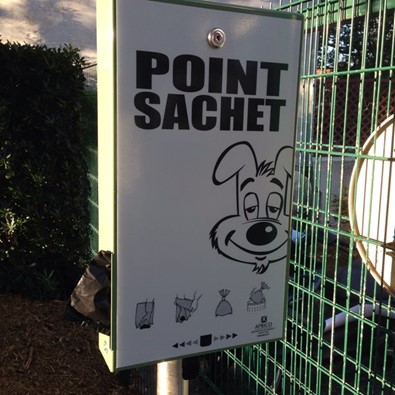Sustainability in Solid Waste Management in Nouvelle-Aquitaine, France
1/12/20244 min read


The concept of sustainability is operationalized at source in France by focusing on reducing the amount of waste produced and subsequently throughout the life cycle of goods.
On a national level, waste management is understood as beginning with waste prevention (as priority) to preparation of waste materials for reuse, recycling, recovery, and finally elimination, one of the objectives being the mitigation of the environmental impacts associated with waste management, resource extraction, and the provision and production of goods and services (MEDE).
The Région of Nouvelle-Aquitaine practises waste prevention, i.e. reducing the volume and/or harmfulness of waste, through actions such as composting and ecological product design (AREC 2017). There has also been investments in inert waste treatment and recovery, with the number of such facilities having increased from 293 in 2015 to 439 in 2019 (AREC 2019).
Generally, and to summarize, efforts at sustainable waste management in the Région have in my opinion delivered mixed results to date, with some wins and some areas for improvement.
Mixed results in waste production and recovery
In terms of waste recovery in the Région, some progress appears to have been made since the institution in 2019 of Néo Terra, a 2030 roadmap toward energy and ecological transition (Région Nouvelle-Aquitaine 2020).
While inert waste from building and public works increased by 20% between 2015 and 2019 (AREC 2019), more inert construction waste (70%) was recovered in 2023, compared to in 2019 (50%) (Néo Terra).
There has been an increase in the production of non-hazardous inert waste from economic activities (0.4% increase from 2015 to 2019) as well as household and similar waste (0.5% from 2019) (AREC 2019), whereas sanitation waste declined by 7% between 2015 and 2019 (AREC 2019).
It could be useful to engage with building and construction organisations, as well as industrial bodies and associations, to collaborate on future strategies for reductions in the generation of construction and economic waste, with a view toward understanding and resolving commercial limitations and concerns while continuing to work together toward our pressing environmental priorities.
Household waste could be reduced by, for example, greater awareness of motivations behind consumer behaviour and choices, and/or by incentivizing more companies to adopt biodegradable and/or recyclable packaging.
Higher recycling rate
The recycling rate of material and organic non-hazardous non-inert waste has increased across all Départements with an average Région-wide increase of 2% between 2015 and 2019 (AREC 2019).
Perspective from Biarritz
In my neighbourhood in Biarritz, which is located in the Département des Pyrénées-Atlantiques of Nouvelle-Aquitaine, the solid waste collection organisations have provided reliable weekly collection services of non-recyclable household waste. In residential areas, recycling bins (comprising 3 bins for glass, organic waste, and all other recyclable packaging materials respectively) are located within a 10-15 minute walking distance from each other. In the supermarkets, I have observed a large variety of products packaged in biodegradable and/or recyclable materials and most if not all customers use recyclable bags (or indeed their own backpacks and tote bags) when taking their purchases home.
(Photograph by Pedro P)
From the perspective of a person on the street, the main sources of waste I have observed on the streets are green waste (such as leaves, twigs, and cuttings), and pet excrement (despite the widespread availability of ‘points sachet’ at various street corners, i.e. stands offering free bags for pet-owners to retrieve and dispose properly of pet excrement). Notably, the Anti-Waste and Circular Economy Act now requires that, across the nation, organic domestic waste, including green waste, will have to be sorted at source as of 1 January 2024 (Service Public 2023).
References:-
Agence Régionale d'Evaluation environnment et Climate ('AREC'). (2017). 'Économic Circulaire: Prévention et Gestion des Déchets en Région Nouvelle-Aquitaine'. https://www.nouvelle-aquitaine.developpement-durable.gouv.fr/IMG/pdf/prevention_gestion_dechets2017.pdf
AREC (2019). 'Flux de Matières, Prévention et Gestion des Déchets en Nouvelle Aquitaine'. https://www.arec-nouvelleaquitaine.com/documents/repere-chiffres-2019-flux-de-matieres-prevention-et-gestion-des-dechets/
European Environment Agency (“EEA”). (2022). ‘Early warning assessment related to the 2025 targets for municipal waste and packaging waste. Country profile: France’. June 2022.
EEA. (2023). ‘Municipal waste recycling rates in Europe by country’. 11 November 2022, last modified 24 November 2023. https://www.eea.europa.eu/data-and-maps/daviz/municipal-waste-recycled-and-composted-6/download.table
Ministère de l’Écologie, du Développement durable et de l'Énergie ('MEDE'). 'Programme national de prévention des déchets 2014-2020'. https://www.nouvelle-aquitaine.developpement-durable.gouv.fr/IMG/pdf/programme_national_prevention_dechets_2014-2020.pdf
Néo Terra. 'Ambition 4 - Innover pour une économie responsable et décarbonée'. https://www.neo-terra.fr/quest-ce-que-neo-terra/ambition-4-economie/
Région Nouvelle-Aquitaine. (2020). ‘Néo terra, la feuille de route de la transition environnementale et climatique’. https://www.nouvelle-aquitaine.fr/grands-projets/neo-terra-la-feuille-de-route-de-la-transition-environnementale-et-climatique
Service Public FR. (2023). 'Tri à la source des biodéchets : comment va-t-il se mettre en place à partir du 1er janvier 2024'. https://www.service-public.fr/particuliers/actualites/A16963
Photographs : Sud-Ouest https://www.sudouest.fr/international/g7/biarritz-les-collectes-des-ordures-menageres-s-organisent-avant-et-pendant-le-g7-2508788.php; Pedro P https://foursquare.com/v/jardin-public-biarritz/4da191297aee54814d86c3fe?openPhotoId=561fd3bd498ec66acdc63f69
Photograph from Sud-Ouest

